Since the beginning of the Coronavirus pandemic, all countries have closed their borders and introduced increasingly stringent travel and travel measures. But with the slowdown in the rate of infection in Europe, governments are gradually preparing to ease restrictions, and are developing plans for us to travel safely again.
Surely, we will have to rethink the way we travel in a completely different way and we will probably choose closer destinations rather than exotic places on the other side of the world. In this blog, I want to offer you an updated list of European countries that are starting to change their anti-Covid measures and that are starting or have already started towards the end of the lockdown.
ITALY
Italy has begun a gradual easing of restrictions by allowing citizens to play sports outdoors, or visit relatives within the same region. The government has urged the population to act responsibly during this second phase of the Coronavirus emergency during which some four million people will return to work in sectors such as construction and manufacturing. Schools remain closed, but hairdressers, restaurants and cafes have started to open (provided that the rules of social distancing are respected), as well as gyms. Prime Minister Giuseppe Conte announced that the ban on travel abroad will be lifted on June 3, when citizens can start to move freely from one region to another.
 |
 |
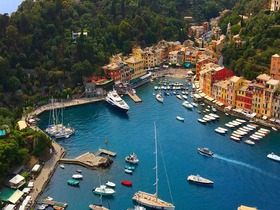 |
Rome - Florence - Portofino
SPAIN
 |
 |
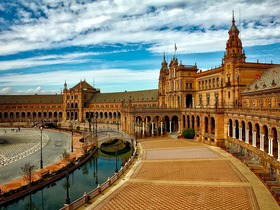 |
Barcelona - Valencia - Seville
GREECE
About six weeks after the start of the lockdown, Greece announced that it would gradually ease the restrictions. Greek citizens can now travel within their home region, ferries to the Greek islands have been reactivated and groups of up to 10 people are allowed. Schools and businesses, bookshops, shops and hairdressers have reopened (with strict social distancing measures and mandatory masks). The aim is to open shopping centres, restaurants and cafes from 1 June. Seasonal hotels will open on 15 June, and international flights should resume on 1 July. The government is in talks with countries such as Germany, Austria, Cyprus, the Czech Republic, Denmark and Israel on the so-called "travel bubble" which will allow citizens to travel if they fail the test. The authorities are also working on new health protocols for hotels and beaches; boats, yachts and cruise ships cannot currently dock in the country's ports.
 |
 |
 |
Mykonos - Athens - Santorini
CYPRUS
Cyprus has also begun to relax its restrictions. Some commercial activities (construction, retail shops, hairdressers, restaurants and outdoor cafes) may reopen. Restrictions on domestic travel, including curfews, were lifted on 21 May; Cypriot airports will reopen on 9 June and the government hopes to partially open to tourists from July. Only citizens from countries with low contagion rates will be admitted and Cyprus is in negotiations with Germany, Austria, Greece and the Czech Republic on the so-called "travel bubble".
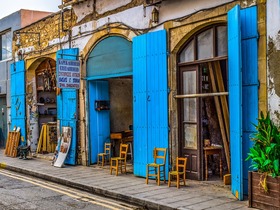 |
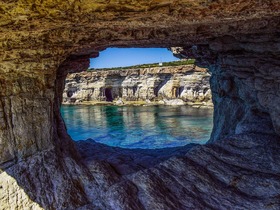 |
 |
Cyprus
FRANCE
France started to introduce less stringent measures at the beginning of May, when it recorded lower mortality and infection rates. Restrictions on travel, sport and gatherings have been partially lifted (masks remain mandatory on all public transport). Primary and secondary schools and most shops are reopening, but restaurants and bars will remain closed until at least 2 June. The country's borders will open to Switzerland and Germany as of 15 June, but no date has yet been announced for non-essential travel from the UK (the Eurostar operates a limited service between Paris and London, but passengers are required to wear masks and carry a completed form indicating the reason for their trip, and all travellers outside the Schengen area or from the UK must stay in quarantine for 14 days).
 |
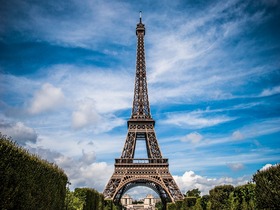 |
 |
Provence - Paris - Loire Valley
ESTONIA, LATVIA AND LITHUANIA
The three Baltic States have mutually agreed to reopen their borders by creating an area of free movement. Following the announcement by Latvian Prime Minister Arturs Krišjānis Kariņš at the beginning of May that all three countries had successfully contained the virus, movement began on 15 May. However, anyone arriving from areas outside the so-called "Baltic bubble" must remain in self-isolation for 14 days. Only tourists from the Baltic countries can move freely in the three Republics.
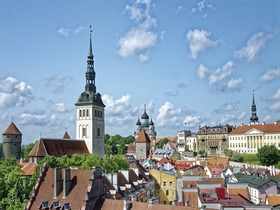 |
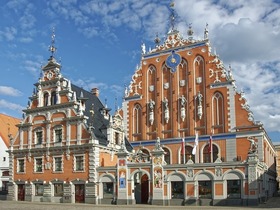 |
 |
Tallinn - Riga -Vilnius
We will return to travel, certainly in a different way, because the pandemic obliges us to change our habits but does not prevent us, with the necessary precautions, now that the borders are open again, or almost, to choose our favorite destinations, perhaps on a road trip to discover the beauty of Europe.
If you wish to plan a customized journey to these destinations contact me at: This email address is being protected from spambots. You need JavaScript enabled to view it.



